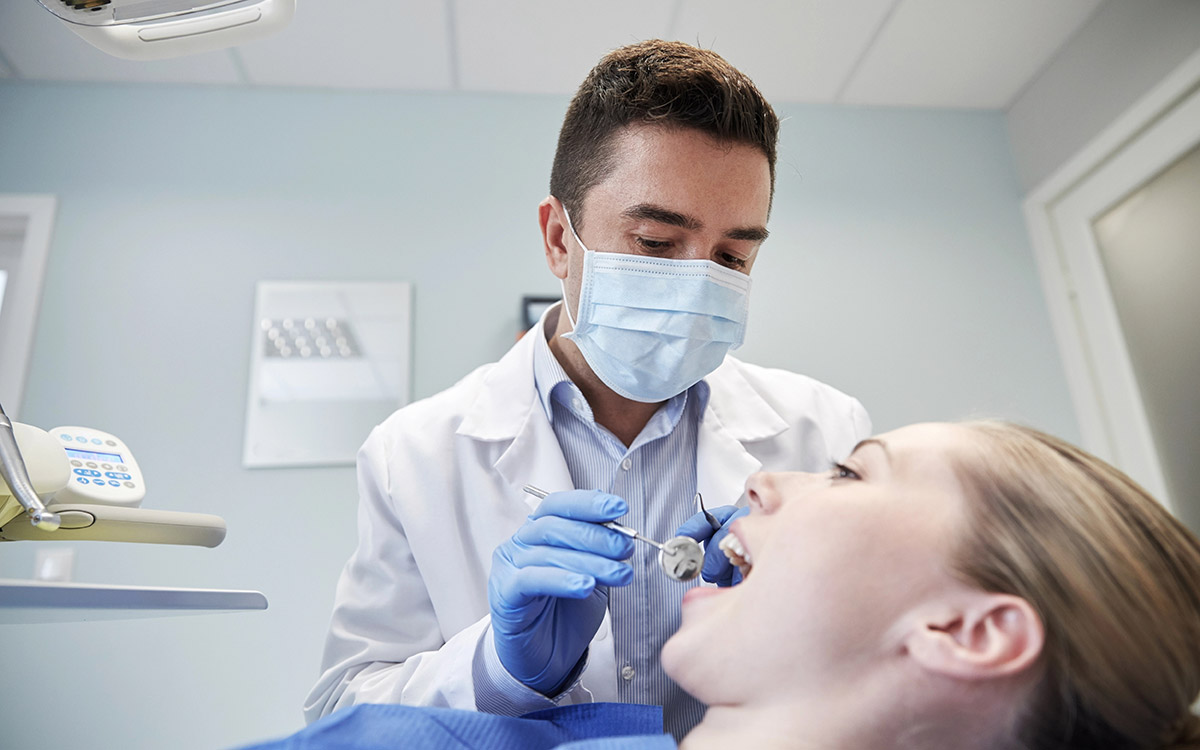Brushing with fluoride toothpaste and flossing daily is important for a healthy smile, but did you know that your diet impacts your dental health as well? Your nutritional habits and food choices can influence your susceptibility to tooth and gum disease.
Studies from the American Dental Association (ADA) show that teeth and gums remain healthy by eating a range of nutrient-rich foods from all food categories. Choosing foods that are harmful to your teeth, on the other hand, might have a detrimental impact on your periodontal health.
Even with a healthy dental hygiene routine, keeping your teeth healthy over time can be difficult. However, maintaining a healthy smile and body requires a balanced diet of whole grains, fruits, calcium-rich foods, protein meals, and vegetables.
Which Foods Are Best for Healthy Teeth and Gums?
1. Milk, Cheese, And Yogurt
Cheese, milk, and yogurt are not only tasty but also beneficial to your teeth. Cheese, yogurt, and milk assist your body to generate more saliva, which helps protect your teeth. In addition, dairy products contain casein. According to studies, caseins, together with calcium, play a vital role in stabilizing and restoring dental enamel. Dairy products contain calcium and phosphorus, which can help strengthen tooth enamel and reduce the risk of tooth decay.
Milk is the best drink for your teeth, aside from good old water. It is high in calcium and other essential nutrients. Calcium is the main component of hydroxyapatite, a mineral that builds tooth enamel and bones. In addition, milk decreases acid levels in the mouth, which aids in preventing tooth decay.
Furthermore, like milk, cheese is a superfood for your teeth because of its ability to prevent acid erosion. Cheese eaten after a meal can help to neutralize the acid left behind from the meal.
Similarly, while yogurt contains calcium, it may also be beneficial to your digestive system. Yogurt contains probiotics, which promote healthy bacteria in your gut. These bacteria aid in the improvement of enamel structure.
2. Water
It should come as no surprise that water is beneficial to any diet. Water washes away trapped particles and debris from teeth, and it’s just as efficient as a mouthwash. Local water supply may also contain fluoride, a mineral that prevents tooth erosion and keeps your gums hydrated while increasing saliva production.
3. Leafy Greens
Vegetables should be a mainstay in your nutrition because they provide several health advantages while being light and low in calories. Leafy greens are high in calcium, folic acid, and various other vitamins and minerals that are beneficial to your teeth and gums.
Salad greens are packed with nutrients, and the high water content of vegetables helps balance out the sugar level. In addition, because chewing fibrous leafy greens like spinach, lettuce, or kale requires a lot of effort, consuming them will produce more saliva, which will help to clean your teeth naturally.
4. Black and Green Tea and Coffee
According to research, tea and coffee will improve periodontal health by decreasing inflammation and inhibiting the growth of bacteria that cause gum disease. Plaque-fighting compounds are present in unsweetened green teas. Polyphenols, found in both tea and coffee, interact with plaque-causing bacteria, killing or inhibiting them.
5. Apples
High-fiber fruits like apples perform as a tooth scrape, similar to how your toothbrush works. Apples also increase saliva production due to the extra chewing they demand. Celery and carrots are other wonderful choices, especially when you’re on the road and need a healthy snack.
6. Citrus Fruits and Vitamin C
Vitamin C is well-known for its antioxidant effects and its role in tissue growth and repair in various regions of the body. When you consume them in moderation, citrus fruits and grapefruits can help oral health. Vitamin C is needed for the manufacture of collagen in the teeth, which keeps their strength and structure integrity. Vitamin C is abundant in strawberries and other citrus berries and fruits, which helps to strengthen the blood vessels and connective tissues in the mouth.
7. Nuts
It’s time to go nuts if you want a healthy smile. Nuts have numerous dental health benefits. Almonds are a sugar-free snack that is high in protein and calcium. Almonds, groundnuts, walnuts, and cashews have also reduced blood sugar levels while increasing saliva production. In addition, nuts are high in vitamins and minerals that are good for your teeth. Cashews also aid in the fight against germs that cause tooth decay.
8. Strawberries
Strawberries contain malic acid, a natural enamel whitener. Malic acid can also be found in a variety of other fruits, including apples. Strawberries are also high in fiber, vitamin C, folate, and manganese. Just remember to floss after eating strawberries because the seeds might get lodged between your teeth.
9. Chocolate
Everybody loves a piece of chocolate after a long day. You’ll be happy to know that chocolate with no added sugar can help prevent cavities by inhibiting the growth of certain oral bacteria and preventing plaque from accumulating on teeth. In addition, dark chocolate is a superfood for your teeth because it contains a component called CBH, which has been shown to help harden tooth enamel, reducing the risk of tooth decay.
10. Shiitake Mushrooms
Lentinan, a compound found in shiitake mushrooms, is linked to tooth decay prevention. Furthermore, the mushrooms contain antibacterial and antioxidant compounds like copalic acid, erythritol, adenosine, and carvacrol, which may aid in the prevention of gingivitis. In addition, the antioxidants play a crucial role in the regeneration and healing of damaged cells in the mouth and gums.
11. Whole grains
While it is true that simple carbs can adhere to your teeth and cause cavities, this is not the case with whole grains. Oats, barley, bran, and brown rice are examples of whole-grain foods that may benefit dental health indirectly by boosting the body’s ability to metabolize blood sugar. They also contain a variety of essential nutrients that actively support the health of your teeth and gums.
Need more advice on the best dental practices to ensure better teeth hygiene? Our team is here to help. Don’t hesitate to get in touch with us.







